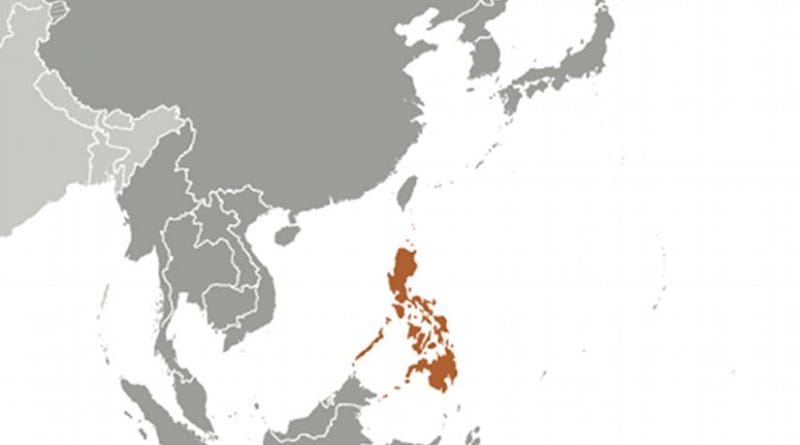Deforestation And Mining Blamed For Philippines Disaster
By Zafar Iqbal
Environmentalists and campaigners blame widespread mining, deforestation and poor disaster management for current flash floods in Philippines which faces several typhoons and tropical storms every year.
Flash floods produced by Tropical Storm Washi (locally known as Sendong) have so far killed around 1000 persons, affecting about 167,460 people in southern cities of Cagayan de Oro and Iligan. According to initial estimates, floods destroyed approximately 1,300 houses and damaged around 3,000 more. Agriculture has suffered a loss of about $184,000 in mostly rice and corn crops.
Government and aid agencies expect a rise in figures of deaths and missing of the victims.
Campaign group Kalikasan People’s Network for the Environment (PNE), which is an alliance of various conservation organizations, has called upon government to change its prioritization to adopt scientific, community-based and accessible climate change adaptation mechanisms.
“The government’s responsibility in addressing disaster and climate change also includes the elimination of laws that run diametrically opposed to its climate action plan,” said Leon Dulce, campaign coordinator of Kalikasan.
“In order to protect the national resources of the country and avoid Sendong like disasters government should scrap the policies and laws like Mining Act of 1995 and the Forestry Code of 1975 with more stringent, pro-people and pro-environment laws.”
According to environment groups both the laws protect and promote logging and mining as legal business in the country. Mindanao island, located about 800km from the capital, Manila, is a mineral-rich region not normally in the path of the average 20 typhoons that ravage other parts of the country each year, therefore, many officials on Mindanao were caught unprepared in Cagayan de Oro, one of the worst-hit areas.
People in the disaster region question the performance and response of authorities of warning system. A campaigner and environmentalist BenCyrus G. Ellorin believes that this tragedy is indeed human induced and could have been mitigated.
“There is great and urgent need to improve our disaster preparedness so that people will not helplessly get flushed from their homes to the Macajalar Bay when flash floods come. Global Warming may bring more bad rains.
A Philippines official also acknowledged that local authorities were left unsuspecting because the northern part of Mindanao was never a storm path, so when the floods struck people could not escape as everyone was sleeping.
Meanwhile, some officials in the region hit by the recent disaster in Philippines believe that widespread illegal logging activities in the mountains of northern Mindanao may have caused the heavy flooding during the onslaught of tropical storm Washi (Sendong).
“The disaster could have been prevented if illegal logging activities in the mountains surrounding the city were stopped a long time ago,” believes Vicente Emano, the Mayer of Cagayan De Oro City, one of the areas heavily affected by the storm.
The disaster hit region has witnessed rampant logging in the recent years. People accuse mining firms for abuse of local forests laws. Philippines government has allocated 53,578 hectares forest lands to private firms for logging in Northern Minadanao.
The Integrated Forest Management Agreement (IFMA), a local permit given to the private corporations, bind firms to carry out reforestation harvest in their operational region, however, logging companies avoid actual reforestation which make the land vulnerable to erosion; and landslides in rains and floods.
A 2009 study by the University of the Philippines National Institute of Geological Sciences has also revealed the increased vulnerability of downstream communities due to the conversion of 2,000 hectares of the Upper Pulangi Watershed’s forest cover into a pineapple plantation owned by the Del Monte Philippines. Inc. Environmentalists worried over government’s poor policies, call for vigorous action for mitigation and environmental protection.
“If we are to address the vulnerability of the people to the disasters, we really think that these policies should be reconsidered and replaced by new policies that addresses the people’s needs, instead of the interests of few privileged companies,” says Cheamson Boongaling Researcher at Centre for Environmental Concerns–Philippines.
Philippines is rich with gold, nickel, copper and other valuable minerals and many international mining firms have been carrying out their operations in various regions of the country.
In February 2011, President Aquino ordered a log ban throughout the country. However in November, the government declared that mining is exempted from this log ban.
Campaigners and anti- mining advocates in Philippines have been protesting against liberalized large-scale mining due to waster spilling, denudation of forests, depletion of aquatic resources and other possible affects to the ecosystem caused by the process. According to environmentalists sluice mining, locally called “banlas,”is destructive for environment because siltation and mercury contamination.
One the other hand, large mining firms put the blame on unregulated small-scale mining and slash-and-burn farming methods. The Chamber of Mines of the Philippines claims that there is no legitimate large-scale mining in or near Iligan City and Cagayan de Oro.
Philippines is vulnerable to natural disasters due to its coastal geography and depletion of forests. The Philippines has lost at least 80 percent of its original forest cover since the 16th century. The country’s forestland was reduced by more than half between the mid-20th century and the early 21st century. Most of the reasons of this shrinking of forests are logging, mining, armed conflicts between local insurgents and national armed forces and agriculture activities. Now forests accounts for less than one-fourth of the country’s total land area.
The country has been placed third among countries most prone to disasters such as typhoons, earthquakes and tsunamis, following the South Pacific island states of Vanuatu and Tonga in the World Risk Index 2011. The index published by The Bündnis Entwicklung Hilft (Alliance Development Works) was jointly conducted by United Nations University (UNU), Germany and the Institute of Environment and Human Security.

